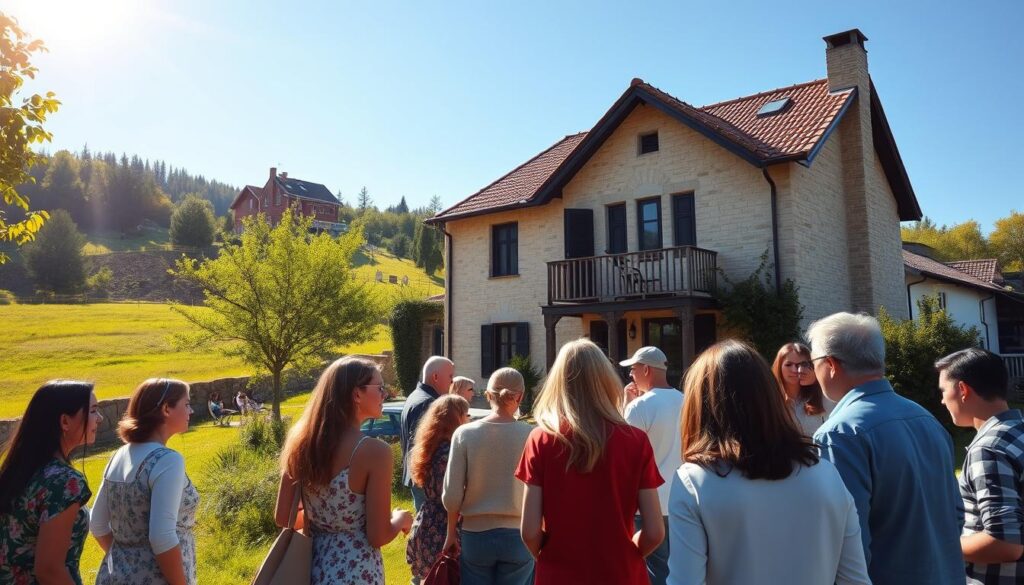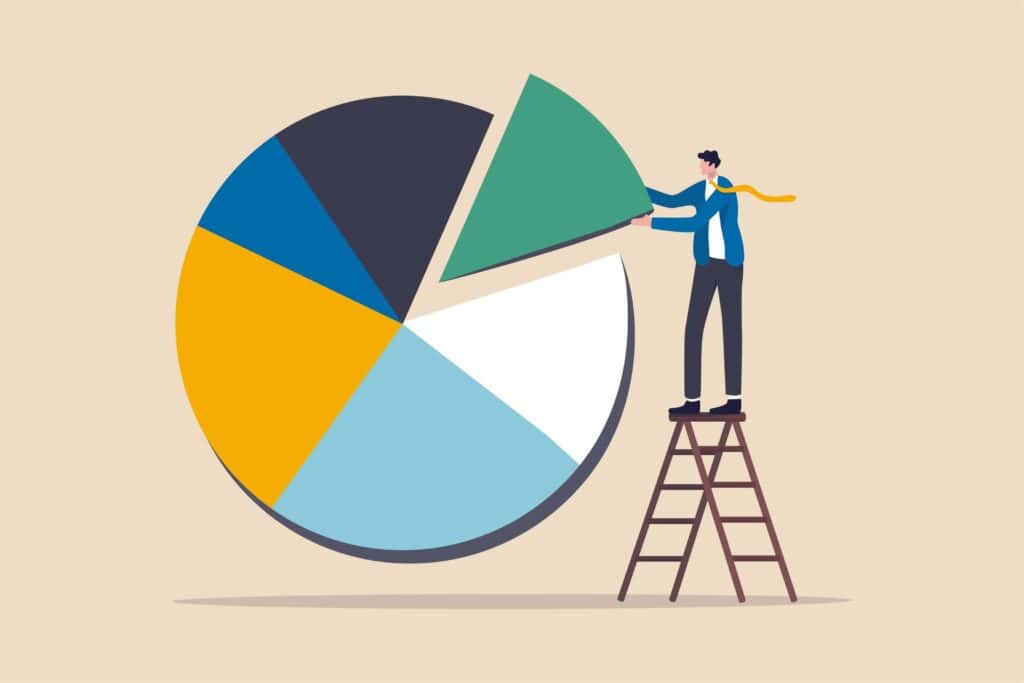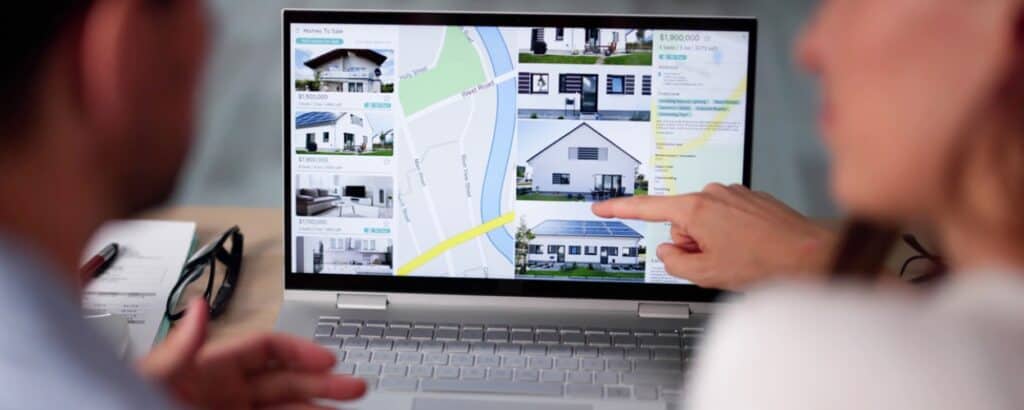Serbia is a country with vivid culture, great history, and impressively beautiful landscapes that lately turn it into a very popular place among foreigners for real estate investment. From pulsating streets filled with life in Belgrade to the tranquility of Novi Sad and the picturesque countryside, Serbia indeed offers a wide range of options for property buyers. If, however, one intents to invest in this enchanting Balkan country, a question could naturally arise: can one buy property in Serbia as a foreigner? This article will touch on the legal framework with respect to foreign investment into Serbian real estate, the process of purchasing, and all factors that a foreign national should consider when buying property in Serbia.
Understanding Property Ownership for Foreigners in Serbia
Yes, foreigners can buy property in Serbia, but there are special rules and procedures for that process. In the last couple of years, Serbia has taken significant steps to attract foreign investment. Several laws were passed aiming at easier acquisition of property by non-residents. Nevertheless, it would be useful to know more about the legal regime and current status of the local market for a successful investment.
This includes the following types of property that foreigners in Serbia can buy:
a. Residential Properties
Foreign nationals can also purchase apartments, houses, and villas. Some targeted areas include Belgrade, Novi Sad, and tourist destinations with resorts such as Kopaonik and Zlatibor. In the residential market-from modern city apartments to quaint houses in rural areas-the choices are indeed varied.
b. Commercial Properties
Investors can also purchase commercial properties, including office space, retail shops, and industrial warehouses. Serbia is developing its commercial sector; therefore, it is also a good platform for foreign investors who want to start businesses or rental operations.
c. Land Ownership
Foreigners can buy land in Serbia, but under certain conditions. In the case of agricultural land, foreign buyers can only purchase it by forming a legal entity in Serbia. However, construction land can be bought by foreigners with general permission, especially within constituted urban areas.
2. Legal Framework Governing Foreign Ownership
a. Foreign Investment Laws
The legal framework on foreign ownership of property in Serbia is basic at the moment, under the umbrella of two key laws: the Law on Foreign Investments and the Law on Property. Both regulate the rights and duties of foreign investors, especially the possibility of non-residents entering real estate.
Another important principle of foreign ownership is that of reciprocity, which means that foreigners from countries allowing Serbian citizens to have property can buy real estate in Serbia. Most countries fulfill this aspect of eligibility, so it is pretty easy for most foreign investors.
c. Establishment of a Legal Entity
The legal entity in Serbia will enable the interested investor to invest in agricultural land or significant commercial activities. It would mean easy access to property and follow all the local legislation.
3. The Purchasing Process
It’s essential to understand the purchasing process in Serbia. Here are the steps you should follow:
Step 1: Market Research
First, market research is in order prior to any purchase. Learn about the different regions, types of property, and various prices. It will help you understand local market dynamics and make your decision accordingly.
Step 2: Hiring a Local Real Estate Agent
You can involve the services of a local real estate agent. An efficient agent would be well knowledgeable about the market and direct you on how to find a piece of property that suits your interests, guiding you even through price negotiations.
Step 3: Legal Consultation
Get hold of a lawyer to represent you, specializing in real estate transactions. His responsibility will be to guide you through the most abstruse points and review contracts, among other documentation procedures.
Step 4: Make an Offer
After having identified a property of interest to you, you could then make an offer to the seller by writing up a formal proposal, usually involving the price you are willing and able to pay, along with conditions.
If the seller accepts your offer, you will typically sign a reservation agreement that outlines the terms of sale. A deposit is typically required with the reservation agreement and can be 5-10% of the purchase price.
Step 6: Due Diligence
Your lawyer has to conduct due diligence at this stage for confirming the legal status of the property, proving encumbrances, if any, and verifying whether the seller has the right to sell. This is an important step toward avoiding possible legal problems in the future.
Step 7: Sign the Sale Agreement
Next comes the signing of the final sale agreement after due diligence, which should be legally binding, with well-detailed terms of sale such as purchase price, time/period of payment, and any contingencies.
Step 8: Register the Property
After the signature of the sale agreement, the property needs to be registered with the local Land Registry. Your solicitor should help in preparing all the documentation that is necessary for registration. This is a very important formality for you, as it will confirm your status as the legal owner of this property.
Step 9: Payment of Taxes and Fees
You will have to pay a number of taxes and fees that are related to the property purchase, which would include:
– Property Transfer Tax: This is the tax of usually 2.5% of the purchase price and is payable on registration.
– Notary Fees: These fees do vary but are usually in the region of 1% of the transaction value.
– Legal Fees: Where a lawyer is used, further costs may be payable, which can be an hourly rate or a fixed fee.
4. Financial Considerations
Buying property in Serbia comes with the following financial consideration:
a. Costs and Fees
In addition to the purchase price, you will need to pay the following costs:
Transfer Tax: Usually 2.5% of the market value of the property
Registration Fees: Depend on the municipality
Legal and Notary Fees: Generally between 1% and 3% of the purchase price
b. Financing Options
Foreign buyers may not have access to Serbian banks’ financing, as most of these institutions have strict rules for non-residents. Your best option would be to consider your options in your home country and to consider a cash transaction in order to make the purchase process smooth and easy.
5. Frequently Asked Questions
a. Can foreigners buy property anywhere in Serbia?
Yes, foreigners can buy property in most areas of Serbia, including urban and rural locations. However, purchasing agricultural land usually requires establishing a legal entity in Serbia.
b. Do I need a residence permit to purchase the property?
No, in the case of property purchasing, you do not have to obtain a residence permit. If you are going to reside for a long period, you can consider researching residency options.
c. How safe is it to invest in the Serbian real estate?
The Serbian real estate market has developed quite fast lately, however as with any kind of investment, one needs to research and exercise due diligence. The risks can be minimal by outsourcing local professionals.
d. Are there property taxes in Serbia?
Yes, there are annual property taxes in Serbia for property owners, which depend on the actual value of the property and the location where the property is situated. This might best be explained by local authorities or a tax consultant.
e. What are possible risks when buying property in Serbia?
Possible risks include market volatility, legal intricacies, and following due diligence properly. Such problems could be mitigated by resorting to local professionals who will lower the risk factor.
6. Potential Challenges
While the property market of Serbia provides wide scope for foreign investors, a number of challenges also exist:
a. Market Volatility
The real estate market in Serbia is prone to fluctuations, due to different economic and political circumstances. Being updated with the latest market news and trends will lead to better investment decisions.
b. Legal Complexity
Watch out for legal complexities, especially if a foreigner does not know anything about local legislation. The working process with experienced professionals-lawyers and real estate agents-can facilitate a successful transaction.
c. Cultural Differences
Understanding the local customs and ways of doing business can be quite important to negotiate a sale successfully. Building up relationships with local agents and other professionals can facilitate smoother transactions.
7. Living in Serbia as a Foreigner
Once you have bought property in Serbia and plan to stay in the country, you will have to look into options regarding your visa. Obviously, buying property doesn’t automatically provide residency, but there are possible applications for employment-related, study, and family reunification visas or residence permits.
Conclusion
Foreigners are allowed to buy property in Serbia, under the condition that they follow the regulations and procedures laid down by Serbian law. At the end of this discussion, it can be said that Serbia is one of those countries which would attract property buyers with its rich history, alive with vivid culture, and ample scope of investment.
The Serbian real estate market can easily be conquered if substantial research, communication with local professionals, and due awareness regarding the challenges are taken care of. Whether you seek a seaside getaway, an investment opportunity, or permanent relocation, Serbia presents a unique blend of history, culture, and modernity to make your investment even more relevant.
While it is in the process of further development and attraction of more and more foreign investments, this could be the right moment to see what Serbian real estate can offer. By making careful planning and informed decisions, it is possible to achieve most from an investment in this enchanting country.










